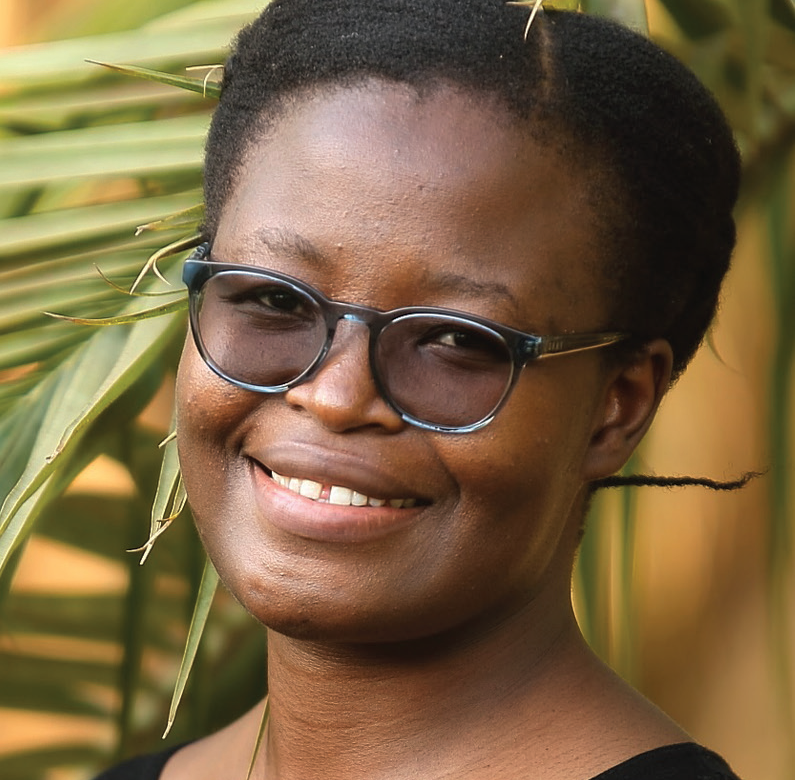Elizabeth Bandason: Shaping the future of farming with science
Elizabeth is not only an insect scientist; she is also a lecturer at the Lilongwe University of Agriculture and Natural Resources.
Because of her interest in pesticides, Elizabeth was awarded a fellowship for African Women Scientists in Agricultural Research for Development as a fellow focusing on safe insecticides in Kenya.

Later on, she was awarded an advanced science placement as a senior scientist at Dow Agro Sciences in Indianapolis where she worked with the research and development team on insecticide formulations to be used in crop protection.
Just after she defended her PhD, she was awarded the 2018 Organisation for Women in Science for the Developing World (OWSD) Early Career Women Scientists Fellowship and continued to explore the insect brains and behaviour. Elizabeth has always had an interest in science and dreamt of becoming a medical doctor as her mother worked in a hospital.
She said: “I lost my father at a very young age and I learnt from my mother that he died from chemical exposures because of the kind of work he did. I became curious and was determined to become a medical doctor to help people.”
As she went through school, Elizabeth realised that being a doctor was not the only thing she could do to help people.
She realised she could prevent people from getting exposed to destructive substances and make them need a doctor; hence, her passion for science.
Elizabeth began studying for a bachelor’s degree in education science and enrolled in physics, chemistry, mathematics and biology.
Upon learning more about chemistry and biology, she discovered invertebrate zoology and parasitology.
“During this time, I still leaned towards being a doctor until I discovered that insects transmit diseases and how they can be controlled. I found insects to be fascinating and capable of causing more problems to people than I had imagined,” she said.
The scientist started asking the important question: What about the complications these chemicals cause that are as big of a problem as the chemicals themselves?
But being a woman in science hasn’t always proven to be easy and Elizabeth faced several challenges along the way, especially as a naturally introverted person.
“I work in a field dominated by males. Sometimes, I shut up in places I shouldn’t. This is a huge disadvantage at times as my ideas sometimes get pushed under the table because I am too timid to articulate them. However, my mentors helped me out a lot by putting me through different leadership courses which proved useful overtime,” she said.
Even though she was determined to do natural sciences, Elizabeth admits being intimidated by it because she was not sure she was good enough to make it.
Said Elizabeth: “As an education science student, I was one of only two girls in the class. I believed I wasn’t good enough to do sciences like everyone and this really affected my confidence.
“However, while in second year, I decided to change my attitude towards what I was doing. I stopped listening to what people said about natural sciences and told myself I will just enjoy what I do.”
She went to Nguludi, Dzumila and Bangula secondary schools.
Elizabeth was selected to pursue a bachelor’s degree in education science at Chancellor College.
She did a master’s degree in environmental sciences with focus on entomology at Chancellor College.
She joined the college as an entomologist and later got admitted for a PhD at Michigan State University in the US.
Elizabeth describes her Kenya fellowship as: “A major turnaround in my career. I was allocated a formal mentor, Dr. Themba Mzilahowa who mentored me for two years. Upon completion, I picked two mentees whom I have mentored under the same programme.”
After her PhD, Elizabeth desperately wanted to continue working on the insect brain and associated senses, but she could not because of lack of equipment.
“I was supposed to return to the US and continue working in the lab with my PhD Professor. This was a very tough decision to make because I either had to let my dreams go down the drain to pursue a completely different branch in insect sciences in Malawi or return to the US to continue working with my supervisor who offered me a postdoc,” she said.
Elizabeth opted to stay in Malawi. OWSD got her the equipment she needed and provided funds for her to recruit a research team.
The doctor was also awarded the Partnership for Increasing the Impact of Vector Control (PIIVeC) as a research capacity development fellow.
This was under Liverpool School of Tropical Medicine (LSTM) and Malaria Alert Centre (Mac), focusing on mosquito behaviour and sensory mechanisms in relation to insecticides that are used for mosquito control.
Soon after the PIIVeC, she was awarded a fellowship to study Essential Entomological Indicators for Malaria control with Liverpool and Mac.
Most recently, she was awarded the FSNet Africa fellowship; a global Challenges Research Fund for Research Excellence Project focusing on insects as feed and cleaners of the environment.
Elizabeth is currently serving as the OWSD Malawi chapter chair and secretary general for the Academy of Sciences.
She likes to look at challenges and problems as opportunities for growth— the more challenging a task or a situation, the greater the opportunities for growth personally and workwise.
The scientist loves discovering new things about insects. However, she is against spending long nights in the lab when she has to observe specific insect behaviour.
“In one of the projects, I am working with my two mentees, where we have to do experiments for one insect species at night from 10 pm to 3 am because they bite at night. In such cases, I do not have a choice, but stay in the lab all night because that insect requires me to do that. Now that’s not fair, but it’s exciting,” she beamed.
She is proud of the students and other young scientists she has mentored as Elizabeth loves to see people succeed and defy the odds.
In 2011, she drew a road map with guidance from her mentors and coach.
“Everything I am doing now was planned way back in 2011. Thank God it has worked just that way. Purpose is a good driver; it keeps you going even when you are going against the odds. It keeps you awake and makes you keep pushing.”
“My advice to young girls is to shoot for the moon, even if they miss, they will still land among the stars. That is my favourite quote from Les Brown. They shouldn’t be afraid to go on a path where there is no trail, let them go there and leave their own trail. More importantly, work hard, think deep, think differently, be resilient and humble,” she said. In her free time Elizabeth loves to sing, read philosophy books and she loves coding and simulations.





